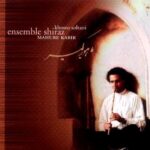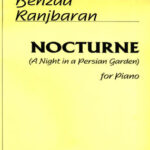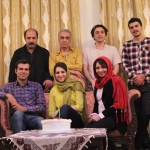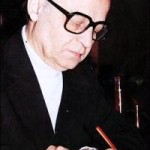
Translated by Mahboube Khalvati
Regional music festivals are organized to, firstly, introduce the music of different regions and, secondly, to support its performers. Regional music festivals are held in large cities for various reasons, including the availability of financial and executive facilities and the presence of an audience. However, the organization of these festivals has always been one of the challenging issues of ethnomusicology. The reason is that the presence of regional music performers in large cities places them in a context other than the context they would normally perform in their homes; consequently this change in situation leads to changes in the quality of their performance.
These changes can include:
1- Changes in the region’s music due to imitation of other works of music
1 .1. imitating a variety of works of music outside the performer’s native region in order to attract non-native audience;
1.2. imitating a variety of musical pieces outside the home region of the performer in order to compete with a variety of regional music pieces which, in the view of the performer, are more technical. (In competitions the problem is even more severe);
1.3. imitating all types of official urban music in order to attract urban audiences;
2. Changes in the music of the region as a result of performing in a new environment;
1.2. Conscious changes in the music: because of the presence of new audience compared to the audience for whom regional music performers usually perform, the regional music performers often cannot play the music of that particular region with all characteristics, for the reason that its performance needs the active attention of the audience (the examples of this type of music may include a variety of ritual and religious elements along with chorus or dance);
2.2 unconscious changes in the music: due to the presence of unfamiliar audience (especially urban audience) or new stage, the performer does not mentally connect with the audience and the music consequently goes through changes (the examples of this type music may include a variety of narration and storytelling accompanying the music).
The aforementioned cases are only part of the reasons for the change in the quality of the performance of regional music in the festivals. On the other hand, as mentioned earlier, there are many reasons why these festivals cannot be held in different regions, and the organizers of these festivals have to inevitably accept the above-discussed decline in the quality of regional music.
The audience of these festivals is made up of two large groups: 1- the public, and 2- researchers.
The public: this group of fans of regional music attends regional music festivals with the aim of familiarizing themselves with the music of different ethnic groups. Therefore, the drop in quality described above has little effect on this group. Generally speaking, the public does not listen to this type of music in a detailed and scrupulous manner. Moreover, this group of the audience is not able to identify the shortcomings. Of course, the presence of these people in the festivals is not only useful for familiarizing with regional music, but their financial support can lead to the motivation and, eventually, the continuation of the activities of regional music narratives.
Cultural scholars: These audiences of regional music festivals watch the performance of regional musicians in a more sophisticated manner. Therefore, should never consider that the performances in regional music festivals are the same as performances done in regional musicians’ home regions. In conclusion, although musical festivals in large cities make the people familiar with less-known cultures and increases people’s material and spiritual support for regional musicians, a music researcher can only find clues through these festivals about cultural incidents. In order words, music researchers cannot consider these performances as a perfect example of music in the regions, the researcher must investigate for his research work in the same area where the particular regional music belongs to.









